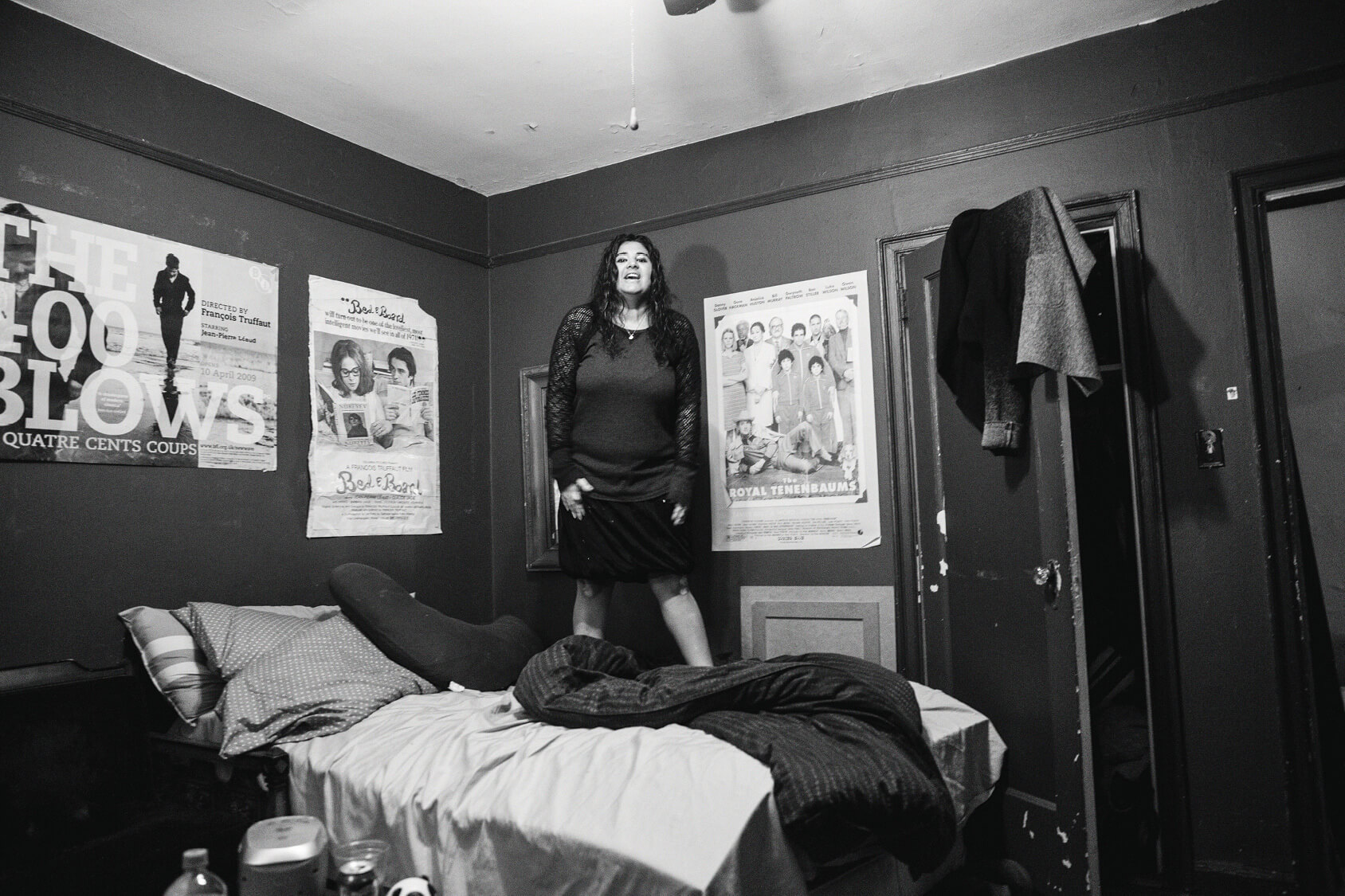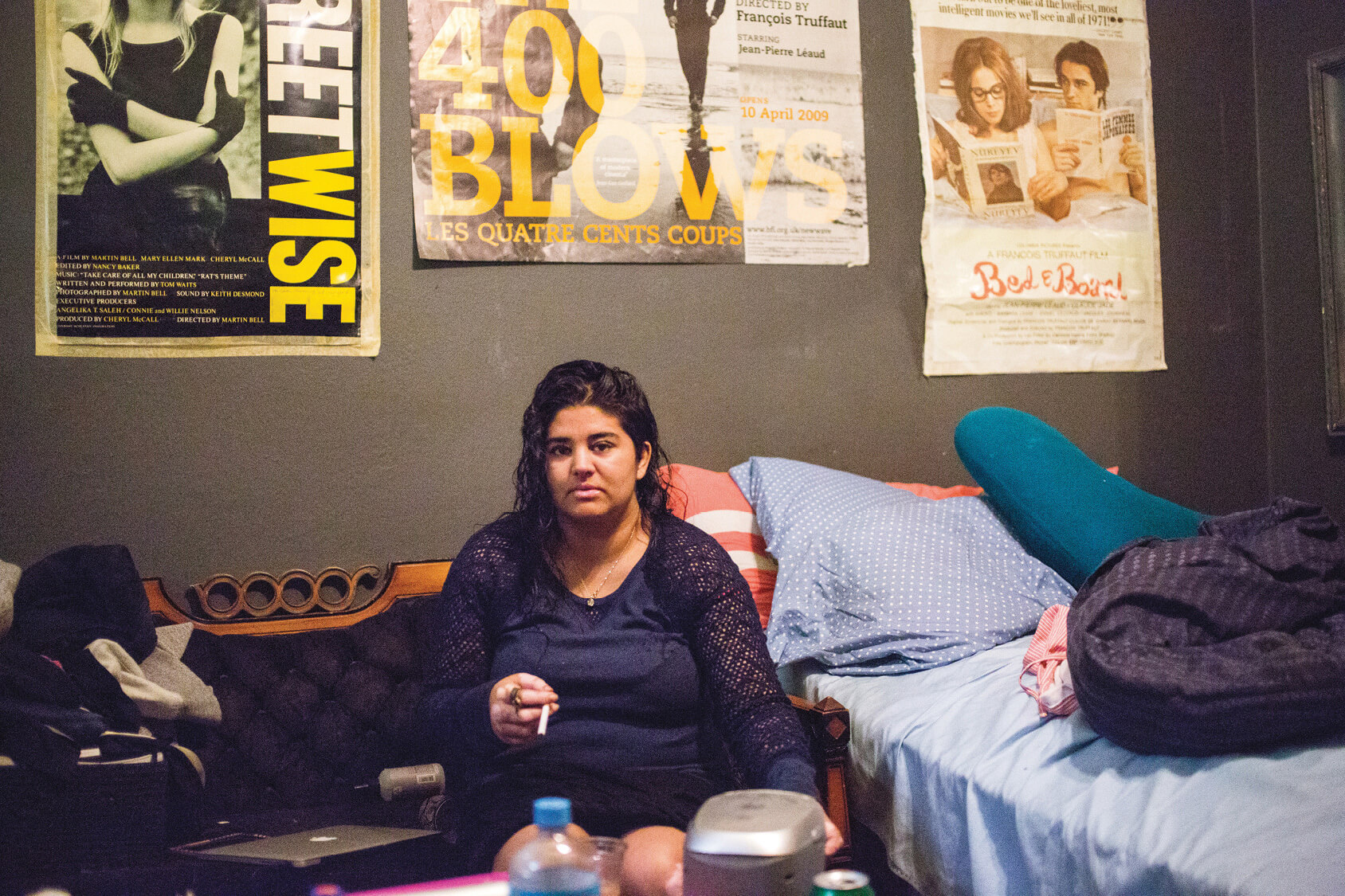
PROBLEMS: JADE SHARMA
TALKS ABOUT HER
DEBUT NOVEL AND
CRAZY BITCH SYNDROME
Kristen EvansJuly 5, 2016
Emily Books is a five-year-old feminist e-subscription service and publisher run by Emily Gould and Ruth Curry. This summer, the publishers are partnering with Coffee House Press to bring their first-ever imprint to life.
I reached out to Emily Books’s first authors to talk publishing, feminism, and being part of something brand new.
Over the phone, debut novelist Jade Sharma and I talked about the pragmatic realities of writing a book and how a bad writing workshop encouraged her to embrace her difficult protagonist. Sharma’s novel PROBLEMS tells the story of Maya, a heroin addict whose marriage is falling apart. Somehow, despite being so dark, PROBLEMS also manages to be funny, sharp, and compulsively readable—just like the Emily Books titles you already know and love.
This interview has been edited and condensed for clarity.
What made you decide to choose Emily Books as your publisher?
Ruth Curry was at the New School with me and she had read some of my thesis. We kept in touch and then she told me how her company was going to start making print books. I thought it was a rare opportunity [to be their first book]. When am I going to be in a situation where I have people who care about my book doing well as much as I do? This is as important to their lives as mine.
There’s been a really positive response to PROBLEMS so far; you have a starred review in Publisher’s Weekly, and you’re one of their summer picks. How’ve you been handling the buzz?
It was hard for me to qualify whether there was a buzz. I’m not Rain Man. [It’s] disorienting to not know exactly how you’re doing. I’m glad you perceive it as a buzz. My life hasn’t changed pragmatically. [My mentor David Gates said to me], “Just work on the second book. Don’t stand there and wait. Work on the second one because you can’t live and die by what you read and what people are saying.” In one way, the narrative of my life could be, “I’m a debut writer who wrote this book that got a starred review!” and the other narrative could be, “I had to count change to buy my iced mocha today and Whole Foods rejected me.” So, I don’t know what it means yet. I want to teach in an MFA program, and I want to write for TV one day. It’s good to be hungry.
Your book is such an interesting mixture of dark and light. There’s addiction and depression and Maya’s marriage falling part, but it’s also really funny and smart and propulsive. Was it hard to strike that tonal balance in the narration, or did that come naturally as part of Maya’s voice?
It came with her voice. I had a professor tell me once, “Don’t base a character on yourself because we perceive the world as something that happens to us.” We don’t think of ourselves as going around and inciting break ups. We think of ourselves as, “I just did the right thing! And these things just happen.” How do I make a voice that you’re sympathetic with, but also, at the same time, is self-destructive [and] aware of her self-destruction? As far as a balance, I don’t think of humor as a way for the medicine to go down. I feel like humor is a coping mechanism, and it’s something that’s in my arsenal. I want the reader to enjoy reading it.

Maya would be so easy not to like, too.
A lot of people didn’t like her. When it was workshopped, I do remember getting ripped. A lot of people would write on the page: “What a bitch!” or “What is her problem?” I think partly there was some misogyny at play. Like, Philip Roth calls his girlfriend a monkey [in Portnoy’s Complaint] and he’s jerking off all over the place and somehow we can all find him to be the unlikable, likable guy, the anti-hero. Somehow we don’t have that carved out for women yet.
I think that can be the trouble with MFA programs, sometimes. People can scare you away from taking those kinds of risks. Did you ever think about changing the novel, or did you think you were on to something?
No, it made me want to do it more. I wanted to know what the problem was. I was like a little kid, poking it. “Oh, this bothers you? This bothers you?” What do you think now? I’ll make it so good that all you can do is bitch about the content. Hmm, why do you have a problem with a woman masturbating, Andrew? What does that say about you psychologically?
Do you get anxious people will confuse you and your narrator?
That’s probably the scariest thing in the world to me, especially sex stuff. I wrote my character, and she came from somewhere, [but] it’s not a biography. It’s not a memoir. Obviously things don’t come out of thin air. The mood is me, but not the details of day-to-day life. I lived with her in my mind for two years, and it was sad when I had to let her go. I created her, and I kept pushing her into a world of shit. I thought, I’ve got to leave her some place safe and happy, but [Ruth and Emily] were like, “You can’t put a bow on it.” That’s why they pulled the last chapter [I originally wrote].
This morning I went back to the line “Behind every crazy woman is a man sitting very quietly saying ‘What? I’m not doing anything.'” It’s a really complex line. Maya is falling apart a little bit, even though there are actions that the men in her life are taking that are making that happen faster. Could you talk about that line and what it means to you and to the book?
I think men are great at being passive aggressive. In the media or just in life, you’ll hear, “My ex was a crazy bitch.” Whenever I hear that from a man, I’m always like, what did some man do to her? In my experience, in this scenario, the guy is passive aggressive and not emotionally available. Men don’t think that’s mean. Society doesn’t have a “crazy bitch” word for it, but it’s a really mean thing to do, to just sit there and be like, “Oh, I’m fine, nothing’s wrong.”


No comments:
Post a Comment